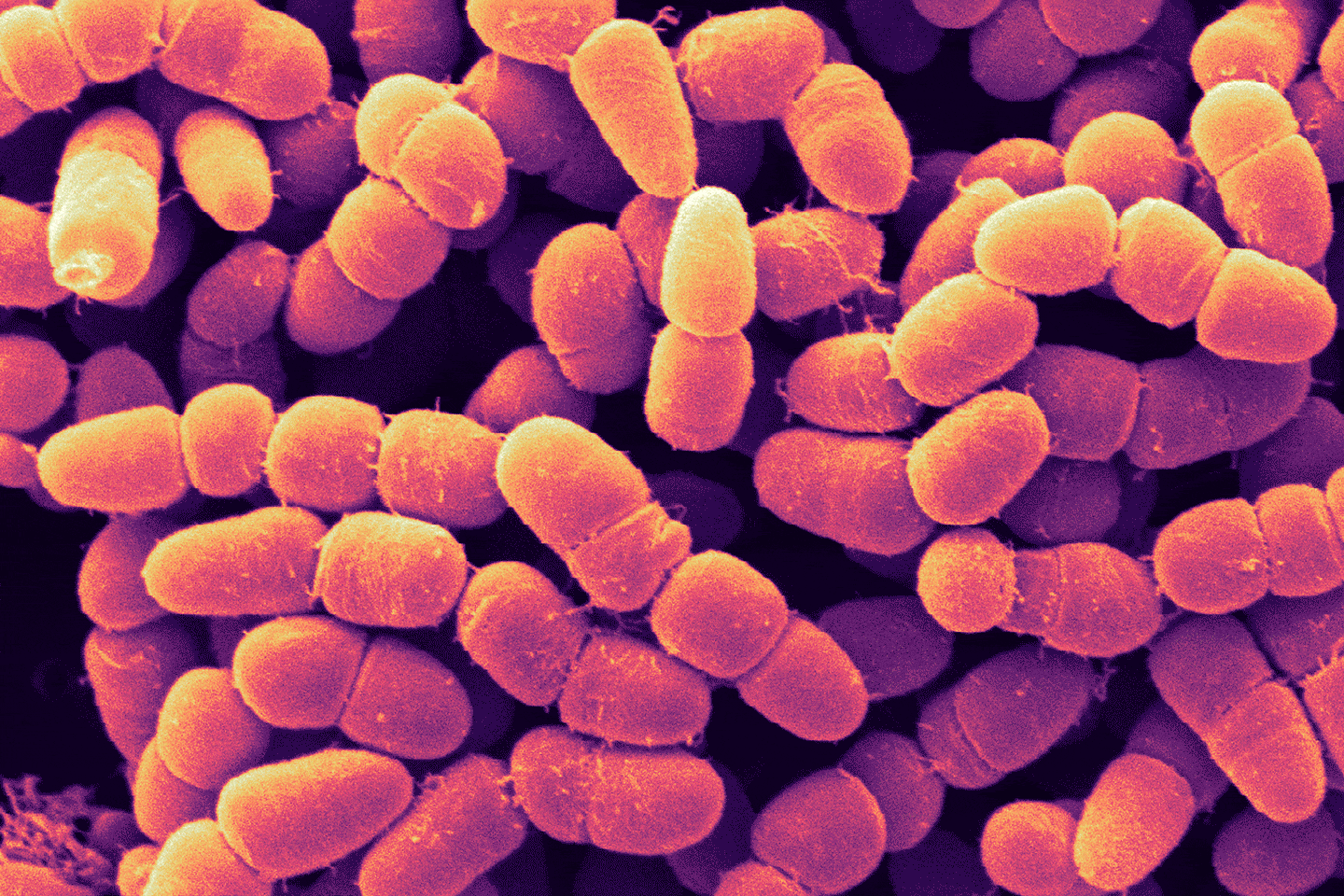The presence of certain bacteria in saliva may be linked to suicidal ideation—so what should we do with that?
COVID-19 has been brutal for the mental health of young people, particularly college students, causing widespread anxiety and depression. A 2021 report from Australia’s Monash University found that the number of students who suffered severe mental distress jumped from 19 to 23 percent during the pandemic, bringing it to a rate 10 points higher than the general population. In the United States, the Michigan Healthy Minds Study (MHMS) found that a cumulative 75 percent of the about 33,000 students who took the survey exhibited clinically relevant signs of anxiety and/or depression—up 7 percent from the fall of 2019. Furthermore, 66 percent reported emotional detachment from others—a primary indicator of depression, and a whopping 83 percent fell behind on academic work due to these feelings.
Though such numbers are meaningful, self reporting may not be the only way to gauge the state of mental disease among students and youths or its accelerating rate during a future pandemic. A recent study from the University of Florida produced an unexpected observation that ties suicidal ideation to the content of someone’s spit.
Surveying some 489 students attending the same undergraduate microbiology course, the researchers found that students who had experienced recent suicidal ideation—who had thought of killing themselves at least once in the two weeks before the survey—exhibited a buccal (mouth) bacterial flora that was very different from that of the rest of the student population.
Although many studies have looked at the association between gut bacteria and depression and anxiety, the Florida study is the first to find a connection between the oral microbiome and behavior. Originally, the study was meant to simply assess the composition of the student’s spit, and laughingly, the students and researchers had at one point dubbed the initiative the GFSC, the Great Florida Spitting Contest. But the results turned out to be no joke. The study found a statistically significant association between specific bacteria in a student’s saliva and the chances they had had suicidal ideation. That came as a complete surprise to the researchers.
Students who had experienced recent suicidal thoughts had abnormal levels of periodontal disease and other inflammatory health conditions.
Originally intended to account for the influence of exogenous factors that impact oral health and the quality of saliva, such as periodontal disease, diet, and sleep, the study was designed to gauge those things by giving the students a self-administered survey to assess their mental health. Called the Patient Health Questionnaire (PHQ9), this survey is typically used for screening adults for depression. It scores their depression on a scale from zero to 27, with anything in the range of 20–27 classified as severely depressed.
Screen the mouth for suicidal risk
The researchers discovered that students who had experienced recent suicidal thoughts—those who scored between 20 to 27—had abnormal levels of periodontal disease and other inflammatory health conditions. But they also found evidence of genetic variations in the saliva of those who had experienced suicidal impulses linked to the notable absence of beneficial bacteria, such as Alloprevotella rava, a microorganism known to produce succinate and butyrate. These two short-chain fatty acid compounds protect intestinal cells against inflammation and at the same time promote brain health. Succinate also specifically has been shown to improve brain metabolism after brain injuries, and blood plasma deficiencies in succinate have been proposed as a diagnostic biomarker for depression.
The researchers found that the people with the high scores and the suicidal thoughts were genetically predisposed to having low levels of A.rava, while exhibiting abnormally high levels of detrimental bacteria such as Porphyromonas gingivalis, Tannerella forsythia, and Treponema denticola, which can enter the bloodstream and promote body and brain infection.
In addition to A. rava, they found differences in other bacteria which may contribute to establishing healthy body homeostasis. But Alloprevotella rava is genetically associated with brain health, says Eric W. Triplett, chair of the University of Florida’s Department of Microbiology and Cell Science, who led the research with his PhD student Angelica P. Ahrens. “We thought that [its absence] was striking and may provide an oral avenue to the brain.”
According to the researchers, this discovery could lead to new ways of administering oral probiotics to help improve someone’s mental health. It could also eventually lead to mouth swab screening tests for suicide risk among large populations.
“We hope that our line of inquiry may help predict suicidal ideation based on a person’s microbiome and can inform pro- or prebiotic interventions for those at risk,” adds Arhens.
However, not everybody is as enthusiastic. “It’s a bit dangerous to think, ‘Just prescribe a probiotic,’ and that’ll take care of it,” says University of Florida child adolescent psychiatrist Andres Pumariega, speaking to campus newspaper The Alligator after the work appeared. Pumariega says more work needs to be done before accepting the correlation as relevant.
“Of course, we don’t think that our study provides a definitive validation,” agrees Triplett. “It suggests though that there’s something there, and it is worth investigating. A good paper leads always to new questions, and I think that our study does that.”
“These results are exciting because they tell us which bacteria we need to look at more closely,” says Ahrens. “Our question now is: What are these bacteria doing biologically that affects mental health?”
The study builds upon other studies looking at the impact of intestinal inflammation on people’s mental state and suicide. A 2021 Swedish study, for example, found a population-wide increase in the risk of suicide among those who experience adult-onset of inflammatory bowel disease. A separate 2017 University of Florida study found that hospitalization for suicidal ideation was significantly greater in people with inflammatory bowel disease compared to people with rheumatoid arthritis and systemic lupus erythematous, two primary inflammation-driven conditions affecting the adult population.
However, “We should be careful not to always look for the silver bullet,” says Kristien Hens, a bioethicist from the University of Antwerp. “Without seeking to diminish the importance of the findings about the oral and the gut microbiome, and inflammation with suicide, we must understand that the phenomenon is much larger than any single contributing factor and that biological and socio-economic as well as cultural elements play into it. Before we definitively drive toward probiotic solutions, we should at least be sure about how the bacteria’s metabolites interact with our biochemistry.”
And that is precisely what Triplett and his colleagues at the University of Florida are now trying to understand, devising several methods meant to ascertain the role bacterial metabolites play in the host’s cellular homeostasis.
For the initial study, students went to the lab to provide their sample, but in the future, they will be able to send in their saliva sample by mail using a collection kit developed by UF’s researchers.
“A bacterial imbalance is very important in our behavior. Especially in aggression.”
“This at-home method will allow us to build a more diverse dataset and test different variables,” Ahrens says, “for example looking at the saliva microbiomes of people who have been diagnosed with depression and are taking antidepressants.”
In the meantime, while U.S. researchers chase questions of whether the analysis of saliva—or for that matter of intestinal composition—could be an effective way to screen for and prevent anxiety, depression, and suicide, an expert in Turkey has a very different, out-of-the-box idea for this discovery. Mehtap Ogdur, a forensic investigator in the Mardin Provincial Directorate of Security in Mardin and co-author of a study on saliva separate from the Florida team, suggests that these tests could be utilized to investigate suicide and homicide cases. Mouth swabs taken from cadavers by medical examiners or investigators at the scene of a suspicious suicide could support or refute whether people took their own lives or whether there was foul play—maybe not definitively, but in a way that would add to the body of evidence. Swabs taken from the mouths of violent criminals when they are arrested could help shed light on some of the drivers of their behavior.
“In my opinion, a bacterial imbalance is very important in our behavior. Especially in aggression,” says Ogdur. “I hope I can one day substantiate crime scenes with the analysis of the microbiota.”













